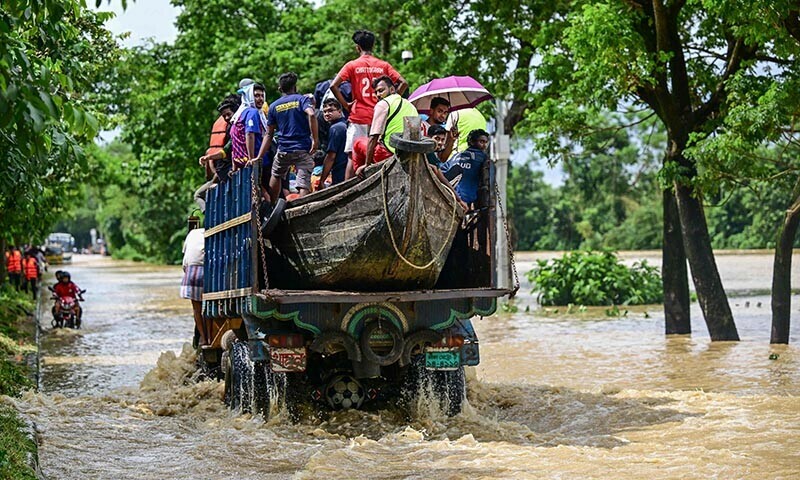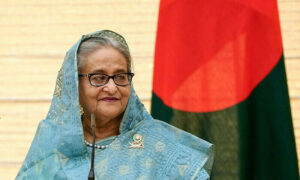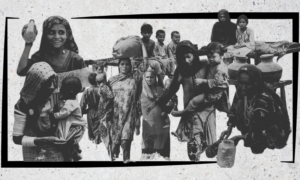Nearly 300,000 Bangladeshis were taking refuge in emergency shelters Saturday from floods that inundated vast areas of the low-lying South Asian country, disaster officials said.
The floods were triggered by heavy monsoon rains and have killed at least 42 people in Bangladesh and India since the start of the week, many in landslides.
“My house is completely inundated,” Lufton Nahar, 60, told AFP from a relief shelter in Feni, one of the worst-hit districts near the border with India’s Tripura state.
“Water is flowing above our roof. My brother brought us here by boat. If he hadn’t, we would have died.”
The nation of 170 million people is crisscrossed by hundreds of rivers and has seen frequent floods in recent decades. Monsoon rains cause widespread destruction every year but climate change is shifting weather patterns and increasing the number of extreme weather events.
Highways and rail lines were damaged between the capital Dhaka and the main port city of Chittagong, making access to badly flooded districts difficult and disrupting business activity.
The flooding also comes just weeks after a student-led revolution toppled its government.
Among the worst affected areas is Cox’s Bazar, a district home to around 1m Rohingya refugees from neighbouring Myanmar.
Tripura state disaster agency official Sarat Kumad Das told AFP that 24 people had been killed on the Indian side of the border since Monday.
Another 18 had been killed in Bangladesh, according to disaster management ministry secretary Md Kamrul Hasan.
“285,000 people are living in emergency shelters,” he said, adding that 4.5m people in total had been affected.
Recovering from unrest
When the floods hit, Bangladesh was recovering from weeks of civil unrest that culminated in the August 5 toppling of autocratic ex-leader Sheikh Hasina.
They have been organised by the same students who led the protests that sparked the ouster of Hasina, who remains in India after fleeing Dhaka.
Crowds visited Dhaka University on Friday to offer cash donations as students loaded rice sacks and crates of bottled water onto vehicles for areas affected by the deluge.
Much of Bangladesh is made up of deltas where the great Himalayan rivers, the Ganges and the Brahmaputra, wind towards the sea after coursing through India. Several tributaries of the two transnational rivers were still overflowing.
However, forecasts showed rain was likely to ease in the coming days.







